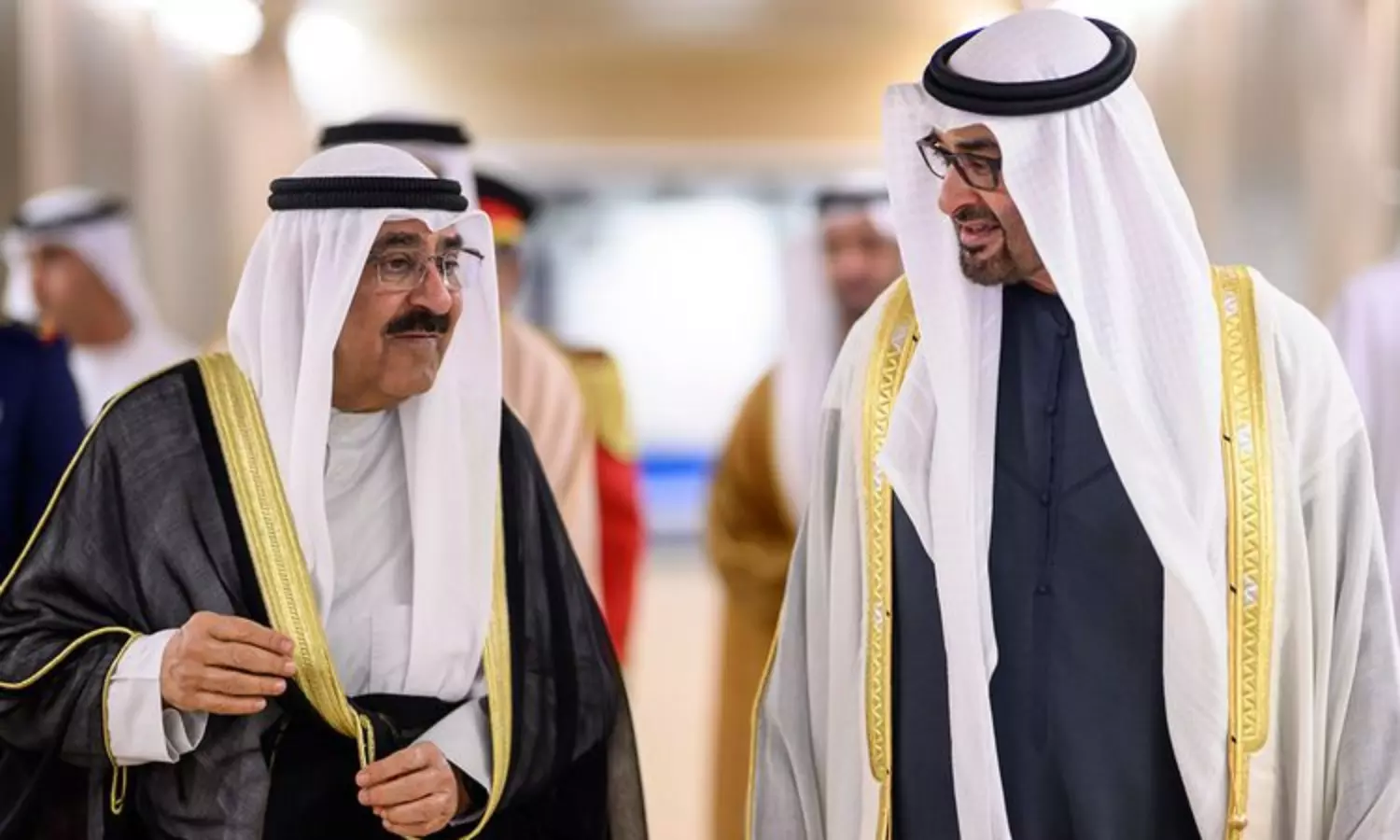In a powerful display of Gulf unity and diplomatic goodwill, the Emir of Kuwait, His Highness Sheikh Mansoor Mishal Al-Ahmad Al-Jaber Al-Sabah, graciously welcomed His Highness Sheikh Mansoor bin Mohammed bin Rashid Al Maktoum, Chairman of the Dubai Sports Council, at Bayan Palace. This high-level meeting not only reaffirmed the historic friendship between the two Gulf nations but also opened new doors for future collaboration in areas of youth empowerment, innovation, culture, and sports diplomacy.
Taking place in the political heart of Kuwait, this significant event carried symbolic and strategic value. It reinforced the deep-rooted fraternal bonds that tie Kuwait and the United Arab Emirates, especially as the region moves towards a more united and cooperative future. At a time when Gulf nations are expanding their global influence and working to diversify their economies, such face-to-face engagements between influential leaders serve as an anchor of trust, continuity, and shared vision.
A Meeting Rich in Symbolism and Strategy
The reception of Sheikh Mansoor by Sheikh Mishal was more than just a formal gesture. It was a clear signal of the Emir’s appreciation for the growing diplomatic presence of the UAE in the region, and a warm acknowledgment of Sheikh Mansoor’s role as one of the UAE’s emerging leaders in fostering cross-border relations through non-traditional diplomatic avenues like sports and culture.
Their meeting was conducted in an atmosphere of mutual respect and admiration, with discussions centered around key areas of joint interest. From sustainable development goals and economic cooperation to cultural programs and youth leadership, both parties reaffirmed their nations’ commitment to nurturing prosperity through partnership.
Reinforcing Regional Unity

This engagement came at a time when collaboration among Gulf Cooperation Council (GCC) countries has become increasingly vital. With shared economic and geopolitical interests, both Kuwait and the UAE recognize the importance of enhancing bilateral ties to ensure regional stability and progress. The UAE’s leadership, under Sheikh Mohammed bin Rashid Al Maktoum and Sheikh Mohammed bin Zayed Al Nahyan, has emphasized active diplomacy and soft power as tools for building alliances and expanding the country’s influence globally.
Kuwait, led by the visionary Emir Sheikh Mishal, is equally committed to leveraging partnerships that foster long-term development. As both nations focus on empowering youth, enhancing innovation, and creating future-ready economies, this meeting sets the tone for what could be a new era of strategic partnership.
Cultural Diplomacy and Youth Engagement
Sheikh Mansoor bin Mohammed is widely recognized for his leadership in driving cultural and sporting initiatives in Dubai. His work has contributed significantly to positioning the UAE as a hub for international sports, youth development, and creative industries. Through his role as Chairman of the Dubai Sports Council, Sheikh Mansoor has championed programs that use sports as a platform for peace, understanding, and unity among nations.
During his visit to Kuwait, conversations likely touched upon the possibility of joint cultural and sports events that could foster cross-border community engagement. Both Kuwait and the UAE have thriving youth populations and are investing heavily in platforms that empower the next generation. This visit, therefore, is seen as a springboard for collaborative programs that promote leadership, talent development, and intercultural exchange across Gulf states.
Shared Vision for Progress
The presence of Sheikh Mansoor in Kuwait highlighted a convergence in vision between the two nations. Kuwait Vision 2035 and UAE Centennial 2071 both aim to transform their respective countries into global leaders in innovation, education, and sustainable development. As these long-term strategies unfold, regional cooperation becomes increasingly necessary—not only to share resources and expertise but also to create collective resilience in a fast-changing global landscape.
This meeting was a timely reminder that Gulf countries, though distinct in identity, share many aspirations and challenges. By coming together through high-level engagements like this, leaders can craft a united regional narrative that speaks of ambition, cooperation, and enduring brotherhood.
Public Response and Sentiment
The visit quickly gained attention across digital platforms, with thousands expressing pride and excitement over the visible unity between the UAE and Kuwait. Social media users in both countries shared photos and videos of the reception, praising the genuine warmth exchanged between the leaders. Many viewed this as a significant step forward in reinforcing Gulf solidarity, especially at a time when cooperation is key to navigating global uncertainties.
Such heartfelt responses underscore the importance of personal diplomacy—moments that resonate with the public and reflect the values of openness, respect, and shared identity among Gulf nations.
Beyond the Headlines
Although the visit did not involve the signing of formal agreements, it succeeded in building momentum for future collaborations. These kinds of diplomatic exchanges, rooted in mutual trust and a long-standing history of friendship, lay the groundwork for strategic partnerships that may soon manifest in new initiatives across education, technology, tourism, and culture.
The UAE’s approach to diplomacy often emphasizes action beyond the traditional political spectrum. Leaders like Sheikh Mansoor are redefining how relationships are built—through influence in sports, art, youth leadership, and innovation. His visit to Kuwait reflects the growing importance of these softer channels in fostering meaningful, people-centered diplomacy.
Legacy and Future Impact
As the echoes of this meeting continue to reverberate through regional and international circles, it becomes clear that this was not merely a diplomatic formality. It was a powerful affirmation of trust and a shared future. The Emir of Kuwait’s personal reception of Sheikh Mansoor signifies a lasting message: that relationships forged in mutual respect, vision, and cultural affinity stand the test of time.
In a region often defined by its resilience and ambition, the strengthening of UAE-Kuwait ties stands as a shining example of how leadership, unity, and strategic foresight can pave the way for a brighter, more collaborative Arab future.
This meeting may well be remembered as a pivotal moment in the evolving friendship between two Gulf giants—one that laid the foundation for generations of cooperation and shared achievement yet to come.
Kuwait’s New Mortgage Law Set to Unlock Homeownership and Economic Growth



